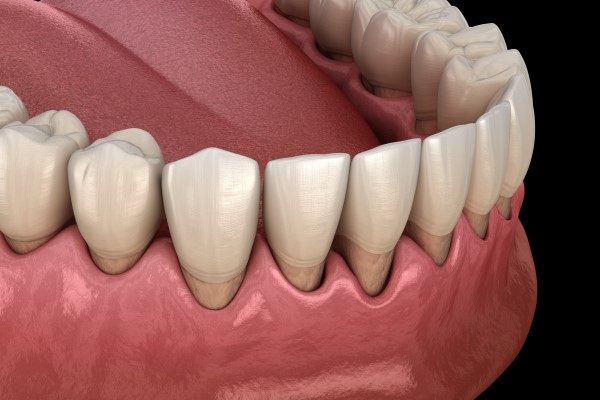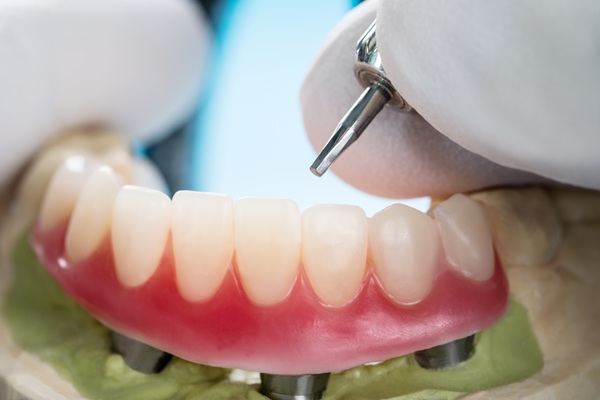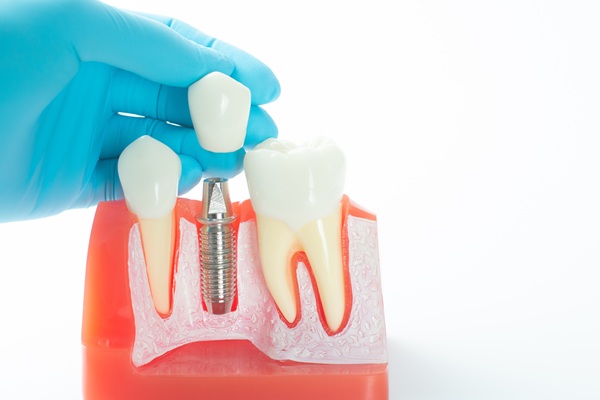4 Common Periodontal Treatments

If someone has gum disease, also known as periodontal disease, periodontal treatment may be necessary. This disease is caused when there is a buildup of plaque and tartar that, left untreated, leads to infection of the gums. There are varying stages of the disease, and catching it early on can prevent it from getting worse. Once it progresses, the treatments become more invasive, and there is often irreversible damage.
Periodontal treatment: Common procedures
There are three stages of gum disease, and it is easier to treat in the first stage. In the later stages, there is a severe infection that can cause bone and tooth loss if it remains untreated.
1. Scaling and root planing
Although regular professional cleaning is usually adequate to get rid of the built-up plaque and tartar that results in periodontal disease, scaling and root planing may be necessary for the early stage of the disease. This non-surgical procedure is a deep cleaning in which scaling removes tartar and plaque from below and above the gumline.
The root planing part is when the periodontist smooths the rough spots on the teeth, which makes it harder for bacteria to attach in the future. It also makes it easier for the gums to reattach.
2. Flap surgery
In the advanced stages, periodontal treatment may be necessary to fight the infection from underneath the gums. During the surgery, the gums are pulled away from the teeth so that tartar can be taken off. Any damaged bone is smoothed, and then the gum tissue is placed securely around the teeth to reduce the chances of bacteria getting into the gum pockets.
3. Laser gum surgery
Using a laser results in less invasive surgery. During the procedure, the laser removes damaged gum tissue and bacteria that have built up in and around the gum pockets. The laser also helps the gums to better attach back to the teeth, which helps speed up the healing time.
4. Bone graft surgery
In the late stages of gum disease, the bacterial infection moves into the jawbone. This results in bone loss, which can lead to loose or shifting teeth. If this is the case, one necessary periodontal treatment may be bone graft surgery.
The periodontist uses fragments of bone to replace the damaged bone in the jaw. These fragments may come from the patient's bone, synthetic bone, animal-sourced bone, or donated bone. This bone graft helps to regenerate bone growth, which may save the teeth. Even if a tooth is unsalvageable and falls out, the new bone growth will be able to support a dental implant to replace the missing one.
Frequently asked questions
Because periodontal disease is common, people often have questions so they can better understand the signs of it and how to prevent or treat it.
Are there risk factors that increase the chances of gum disease?
Certain risk factors may make one more susceptible to periodontitis or quicken its progression. These include:
- Tobacco use
- Genetics
- Age (around 70% of those 65 and older have gum disease)
- Medications such as antidepressants, birth control pills, and heart disease meds
- Poor nutrition, which interferes with the body's ability to fight infection.
- Diseases such as diabetes, cardiovascular disease, and rheumatoid arthritis
What are some common signs of gum disease?
During the early stages of the disease, there may be no noticeable signs, which is why it is important to see the dentist regularly, as he or she can diagnosis it early. The first symptoms to appear are usually red gum tissue, bleeding while brushing or flossing, and increased gaps around the teeth. As the disease progresses, the signs include swollen gums with pustules, constant bad breath, receding gums, pain while chewing, and loose teeth.
How can one prevent gum disease?
The best ways to prevent the disease is to maintain good brushing and flossing habits and to visit the dentist at least twice a year for professional cleanings and check-ups. People who are at higher risk of developing periodontal disease may need to visit the dentist more frequently.
Conclusion
Gum disease is common, and if periodontal treatment begins early, the later stages can be prevented. If the disease remains untreated, there are numerous unwanted consequences. If you notice swollen, red, or bleeding gums, a periodontist can perform an exam to see if you have an infection. If so, the periodontist will recommend the right treatment plan.
Request an appointment here: https://corderoperiodontics.com or call Rafael E. Cordero, DDS PA at (561) 763-9221 for an appointment in our Palm Beach Gardens office.
Check out what others are saying about our dental services on Yelp: Periodontics in Palm Beach Gardens, FL.
Recent Posts
Periodontal health goes beyond periodontal treatment at the dentist's office and a consistent oral care routine. Increasingly, research is shedding light on the intricate connection between nutrition, lifestyle, and periodontal health.In this post, we explore the integration of nutrition and lifestyle into periodontal treatment, highlighting the transformative impact that it can have on preventing and managing…
Periodontal treatment from a periodontist is a great way to address a range of gum and jawbone concerns. They can also treat issues like missing teeth. This review discusses the various treatment options that are available for patients who consult a periodontist and highlights the signs that indicate a need to visit this specialist.Popular treatment…
A periodontist will examine your complete medical and dental history on your first visit to the office. This is to check if you react to specific medications and have any pre-existing disorders impeding your dental care. Your periodontist will then perform a comprehensive gum examination to look for signs or symptoms of illness.In certain situations,…
Part of having good oral health is avoiding periodontal disease and maintaining healthy gums. Unfortunately, gum disease is a common issue that people have, though it is preventable. You can take everyday steps to avoid problems with your gums. If you neglect these needs, you can experience severe consequences. You should understand periodontal disease and…


